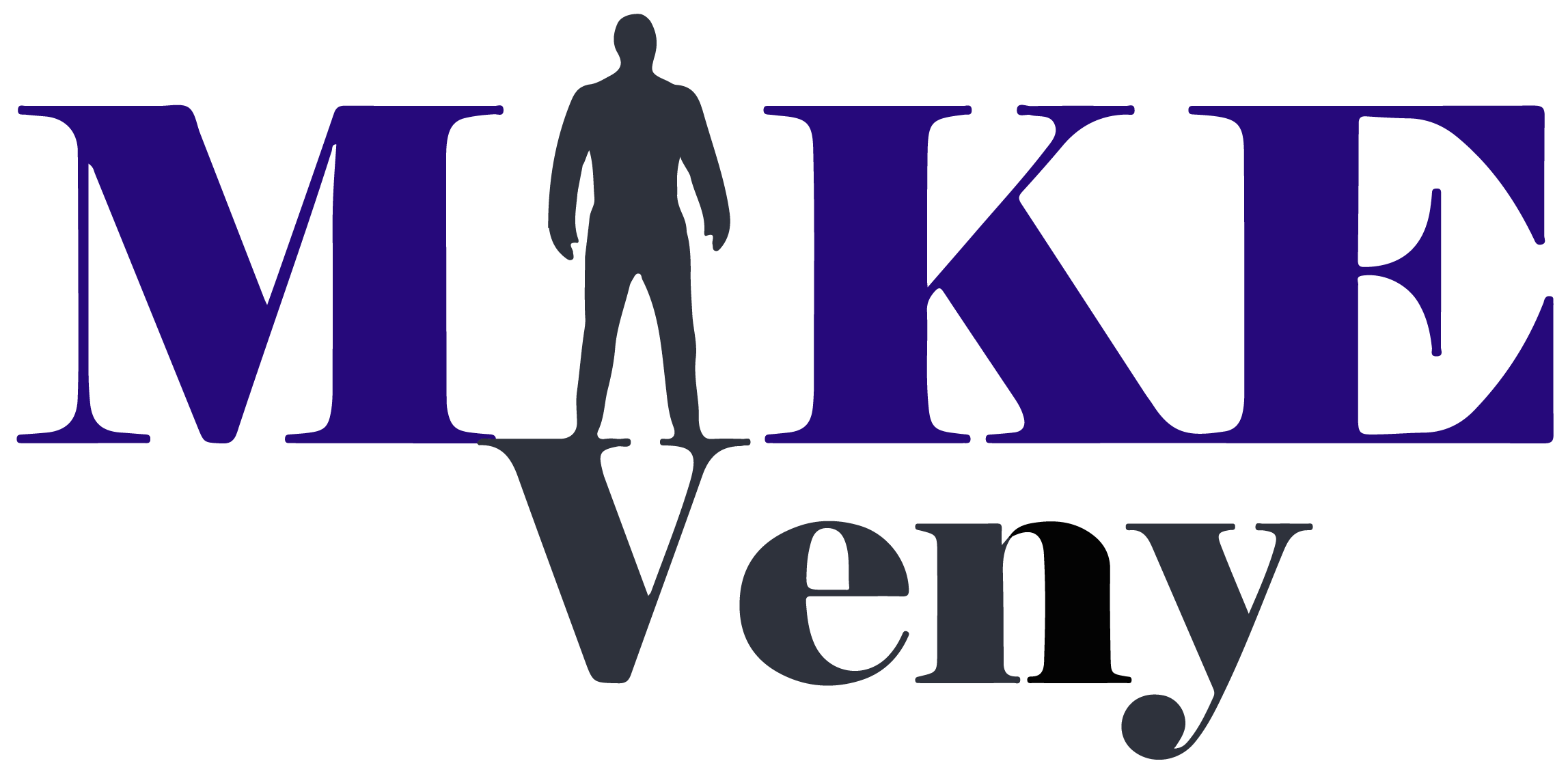Becoming a mental health speaker can be a fulfilling way to share your experiences and help others. If you’re passionate about mental health awareness and want to make a difference, this career path might be for you. You can use your voice to educate, inspire, and break down stigmas surrounding mental health issues.
Since 2011, I have been a full-time mental health speaker, and my career continues to grow. When I began the speaking journey, I didn’t know where to begin. I hope that this guide serves as a resource that will help you out if this is something you want to pursue. Like anything worthwhile, it takes investments of time and money, but most importantly, knowledge.
This guide will show you how to become a mental health speaker. We’ll cover building a strong foundation, creating compelling content, and establishing your online presence. You’ll also learn about growing your speaking business, including finding opportunities and setting fees. Whether you’re interested in becoming a motivational speaker, public speaker, or workplace mental health advocate, this resource will help you get started on your journey.
Develop a Strong Foundation
To become a mental health speaker, you need to build a solid foundation of knowledge and experience. This involves educating yourself on mental health topics, gaining practical experience in the field, and building a support network.
Educating yourself on mental health topics
To start your journey as a mental health speaker, it’s crucial to educate yourself on various mental health topics. This knowledge will help you develop empathy and compassion for those facing mental health challenges. Read mental health blogs, articles, and books about mental health to broaden your understanding. You can also listen to mental health podcasts to stay updated on current trends and research.
Understanding mental health conditions and their signs and symptoms can contribute to your personal growth and help you recognize early warning signs in yourself and others. This awareness allows you to take proactive steps to reduce the impact of stress, anxiety, or burnout on your life.
As you increase your knowledge, you’ll be better equipped to engage in informed and destigmatizing conversations about mental health. This is essential for creating a supportive environment where individuals feel comfortable seeking help and connecting with support networks.
Gaining practical experience in the field
While education is important, gaining practical experience in the mental health field is equally valuable. Consider working in a residential setting, which can provide you with a unique “24 hours a day, day in and day out” experience. This type of work allows you to collaborate with experienced professionals in various roles and helps you determine which career path aligns best with your skills and interests.
As you gain experience, remember that it’s okay not to be perfect at first. Approach your work with humility and curiosity, acknowledging that you have a lot to learn. This attitude will help you grow and improve your skills over time.
Building a support network
Developing a strong support network is crucial for your personal and professional growth as a mental health speaker. Join professional organizations related to mental health and public speaking, such as the National Speakers Association. These organizations offer opportunities to network with other professionals, attend conferences and workshops, and stay current with the latest research and best practices.
Attending conferences and workshops is an excellent way to connect with colleagues, share experiences, and gain valuable insights into your practice. These events bring together professionals from around the world, providing ample opportunities to build relationships and expand your network.
Consider joining peer consultation groups, which offer a safe and supportive space to discuss cases, share insights, and seek feedback. These groups can provide emotional support and a sense of community, allowing you to discuss challenges and frustrations with colleagues who understand your profession.
By developing a strong foundation through education, practical experience, and a supportive network, you’ll be well-equipped to embark on your journey as a mental health speaker. Remember, becoming a successful speaker takes time and effort, but with dedication and persistence, you can make a significant impact in raising awareness about mental health issues.
Create Compelling Content
To become a successful mental health speaker, you need to develop engaging and impactful content that resonates with your audience. Here are some strategies to help you create compelling content:
Developing signature talks and workshops
Creating signature talks and workshops is crucial to establishing yourself as a mental health speaker. These presentations should reflect your unique perspective and expertise. To develop a powerful signature talk:
- Identify your strategic objectives: Make a list of your main reasons for giving the presentation and prioritize them. This will help you stay focused and ensure you cover all essential points.
- Use storytelling: Incorporate personal stories and real-life examples to make your content more relatable and engaging. Sharing your own experiences with mental health challenges can help break down barriers and encourage open discussion.
- Include practical strategies: Offer actionable advice and tools that your audience can apply in their daily lives. For example, you could introduce the concept of “stress buckets” to help people understand how stress accumulates and the importance of regular self-care.
- Practice and refine: Continuously work on improving your signature talk. Seek feedback from colleagues and audience members to identify areas for improvement.
Writing articles and blog posts to showcase expertise
Writing articles and blog posts is an excellent way to demonstrate your knowledge and reach a wider audience. For example, you’re reading one of mine right now.
Consider these tips:
- Choose relevant topics: Focus on subjects that align with your expertise and address common mental health concerns.
- Use a clear and concise writing style: Make your content easy to read and understand, especially for young learners in grades 7-8.
- Incorporate research and data: Include credible sources and statistics to support your points and add credibility to your writing.
- Optimize for SEO: Use relevant keywords naturally throughout your content to improve its visibility in search engine results.
- Submit guest posts: Consider writing for reputable mental health blogs or websites to expand your reach and build your reputation.
Creating valuable resources for your audience
Developing additional resources can help you provide more value to your audience and establish yourself as a go-to expert in mental health. Some ideas include:
- Downloadable worksheets or guides: Create practical tools that complement your talks and workshops.
- Video content: Produce short, informative videos on specific mental health topics to share on social media or your website. For example, check out my YouTube channel.
- Podcasts: Consider starting a podcast to discuss mental health issues in-depth and reach listeners who prefer audio content. For example, listen to my podcast.
- Online courses or webinars: Develop more comprehensive educational materials to help people dive deeper into mental health topics. For example, see my course catalog.
By creating compelling content across various formats, you’ll be better equipped to engage your audience and make a lasting impact as a mental health speaker. Remember to continuously update and refine your content based on feedback and new research in the field.
Establish Your Online Presence
To become a successful mental health speaker, it’s crucial to establish a strong online presence. This will help you showcase your expertise, reach a wider audience, and attract potential clients. Here are some key strategies to help you build your online presence:
Building a professional website and blog
Creating a professional website is essential for establishing yourself as a reputable mental health speaker. Your website serves as a hub for your online presence and often provides the first impression for potential clients. To make your website effective:
- Choose a modern, sleek design that reflects your professionalism and reliability.
- Include high-quality content that showcases your expertise and attention to detail.
- Ensure your site is user-friendly and easy to navigate.
- Incorporate a clear call-to-action to help visitors take the next step, such as booking you for a speaking engagement.
Adding a blog section to your website is an excellent way to demonstrate your knowledge and engage with your audience. Regularly update your blog with insights, trends, and valuable information related to mental health. This will help establish you as a thought leader in your field and improve your website’s visibility in search engine results.
Leveraging social media platforms
Social media platforms offer powerful tools to connect with your audience and expand your reach as a mental health speaker. To effectively leverage social media:
- Choose platforms that align with your target audience and personal style.
- Share relevant content consistently, including articles, videos, and personal insights.
- Engage with your followers by responding to comments and messages promptly.
- Use hashtags related to mental health to increase the visibility of your posts.
Remember to maintain a professional tone while also being authentic and relatable in your social media presence.
Creating video content to showcase your speaking style
Video content is an excellent way to demonstrate your speaking abilities and connect with potential clients. Consider creating a demo video that highlights your speaking style and expertise. When creating video content:
- Ensure high-quality production values, including clear audio and visuals.
- Start with a compelling hook to grab viewers’ attention immediately.
- Showcase your ability to engage an audience and deliver valuable information.
- Share your videos on your website, social media platforms, and professional networks.
By establishing a strong online presence through a professional website, active social media engagement, and compelling video content, you’ll be well-positioned to attract speaking opportunities and grow your career as a mental health speaker. Remember to consistently update your online presence and adapt to new trends and technologies in the digital landscape.
Grow Your Speaking Business
As you establish yourself as a mental health speaker, it’s crucial to focus on expanding your reach and impact.
Developing multiple revenue streams
To build a sustainable speaking business, it’s essential to diversify your income sources. Consider offering a range of services beyond traditional speaking engagements. For instance, you could provide consultations, host workshops, or create online courses. Many mental health speakers also find success in writing books or developing educational materials.
Speaking opportunities can come from various sources. Conferences, organizations, and groups are often looking for experts to share their knowledge. When approaching these opportunities, be upfront about your speaking fee and get commitments in writing. While some organizations may request pro bono work, remember that your time and expertise have value.
Scaling your impact through online courses or books
Creating online courses or writing books can significantly expand your reach and provide passive income. These resources allow you to share your expertise with a broader audience and establish yourself as an authority in the mental health field. For example, you could develop a course on coping strategies for anxiety or write a book about your personal journey with mental health.
When considering writing a book, be prepared for the challenges involved. It’s a demanding process that requires dedication and vulnerability. However, if done for the right reasons, it can be incredibly rewarding. Remember that the quality of your writing matters, so consider working with an editor to refine your work.
Balancing paid and pro bono speaking engagements
While building your speaking business, it’s important to strike a balance between paid and pro bono engagements. Pro bono work can be an excellent way to gain exposure, build your reputation, and give back to the community. However, it’s crucial to set clear boundaries and criteria for offering free services to avoid exploitation.
When considering pro bono work, look for opportunities that align with your values and can potentially lead to paid engagements in the future. For example, you might offer a free workshop at a local community center or participate in a mental health awareness event at a school.
As you grow your speaking business, remember to continuously refine your skills and stay updated on current mental health trends and research. Joining professional organizations like the National Speakers Association can provide valuable resources and networking opportunities. By diversifying your revenue streams, scaling your impact through various mediums, and balancing paid and pro bono work, you can build a successful and fulfilling career as a mental health speaker.
Conclusion
Embarking on a career as a mental health speaker can be a rewarding journey that allows you to make a real difference in people’s lives. By developing a strong foundation, creating compelling content, establishing your online presence, and growing your speaking business, you can build a successful and impactful career in this field. Remember, success doesn’t happen overnight, but with dedication, continuous learning, and a genuine passion for mental health advocacy, you can achieve your goals and help others along the way.
As you pursue this path, keep in mind that your own mental well-being is just as important as the message you share with others. In this process of all of this, remember to take care of your mental health. Stay true to your values, maintain a balance between work and self-care, and don’t hesitate to seek support when needed. With perseverance and authenticity, you can become a powerful voice in the mental health community, inspiring change and fostering understanding one speaking engagement at a time.
FAQs
What role do mental health speakers play? Mental health speakers play a crucial role in initiating conversations and reducing the stigma associated with mental health issues. They help make discussions about mental health more mainstream and comfortable for the general public.
What is the typical cost to hire a mental health speaker? The cost for hiring a mental health speaker generally ranges from USD 2,000 to USD 5,000. However, this fee can vary depending on factors such as travel expenses, the chosen speaker, and other specific requirements.
How can one become a speaker for Active Minds? To become a speaker for Active Minds, you need to submit an application along with a biography that details your personal and professional experiences with mental health and public speaking. Additionally, you should provide a concise outline of your proposed speech, including the title, objective, summary, and expected learning outcomes. Learn more…
What steps should I take to become a mental health advocate in the workplace? To advocate for mental health at work, start by educating yourself about mental health issues. Work on breaking the stigma and consider seeing a counselor to enhance your understanding. Volunteer for mental health initiatives, speak openly about mental health, push for policy changes, support and empower your colleagues, and set a positive example by leading through your actions.





